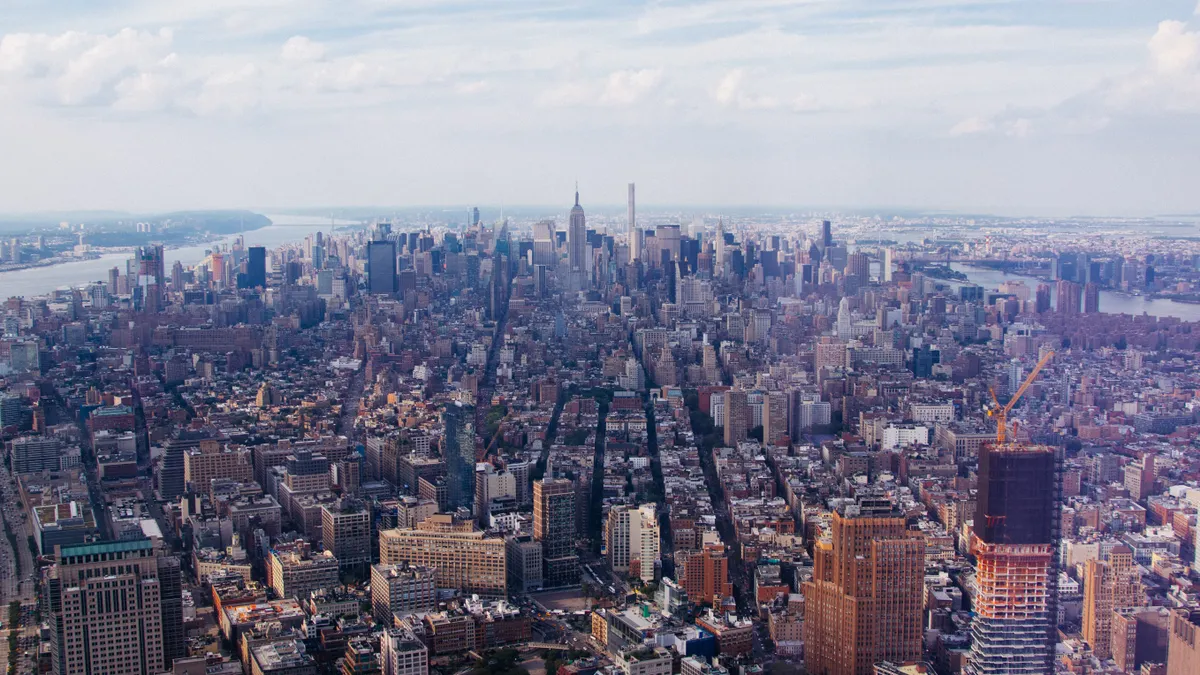Dive Brief:
- Members of Mayor Bill de Blasio's administration are asking the New York City Council to consider multiple measures that would curb the expansion of ride-sharing services.
- One of the measures involves creating a new regulatory category for app-based ride-share and charging a $2,000 fee annually for each car in the system. Drivers also would only be able to work for only one app-based company. Another measure would limit the number of cars each company could have in operation.
- The mayor's Taxi and Limousine Commission chair noted that for-hire vehicles on New York streets have ballooned from 50,000 in 2011 to 130,000 now, and certified drivers have grown in number from 90,000 to 180,000. She said the vast majority of the growth comes from ride-share services, like Uber and Lyft.
Dive Insight:
The de Blasio administration has gone after ride-share before, namely in 2015 when it suggested limiting the number of ride-share driver licenses. The administration backed down when faced with an outcry from ride-share customers. Then protesters showed up at this week's City Council meeting to denounce the measures under consideration and show support for ride-share drivers.
The Taxi and Limousine Commission chair supports limits on ride-share vehicles, but not the proposal that would charge $2,000 per car annually. She said that would create financial trouble for drivers already struggling to get by. She also opposes the idea of forcing drivers to commit to one company, explaining that about half of the city's for-hire drivers work for more than one and they need that option in the increasingly crowded field.
Members of the administration have repeatedly indicated that the ride-share boom has thrown thousands of additional vehicles on the streets and therefore has a strong correlation to New York's worsening traffic congestion. It has repeatedly tossed around ideas to restrict the industry's rapid growth, reportedly in an attempt to ease congestion.
Many of the ideas have centered on additional fees. Last month the state imposed a $2.75 surcharge on single-passenger ride-share trips in a large chunk of Manhattan, and a $2.50 surcharge for taxis.
New York is not the only city trying to mitigate the effects of the ride-share industry's rapid expansion: Chicago recently added an additional tax to ride-share trips that will pay for transit improvements. Washington, D.C.'s mayor proposed a ride-share tax in March, and San Francisco and Oakland, CA are looking at similar measures.












